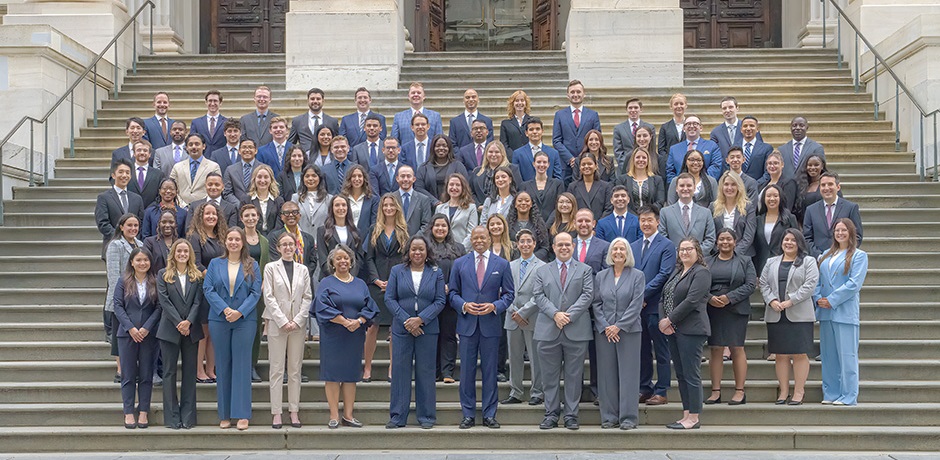The recent surge in demand for online learning has led to a wider availability of FAFSA-approved online certificate programs. This expansion offers convenient and affordable options for professional development but also introduces challenges related to program quality and accreditation. Careful research is crucial to ensure program legitimacy and relevance to career goals. This guide is your go-to resource for navigating the world of FAFSA-approved online certificate programs, helping you understand how to find, fund, and complete a program that aligns with your career aspirations.
Toc
- 1. Current Trends in Online Education
- 2. Understanding FAFSA and Your Eligibility
- 3. Finding the Right FAFSA-Approved Online Certificate Program
- 4. Funding Your Education: Beyond FAFSA
- 5. Balancing Work, Life, and Studies
- 6. Launching Your Career with Your New Certificate
- 7. Related articles 02:
- 8. Addressing Common Concerns About Online Certificate Programs
- 9. Conclusion
- 10. Related articles 01:
Current Trends in Online Education

In recent years, micro-credentials have gained traction, reflecting a shift in how individuals pursue education and skill development. These short, focused programs offer specialized knowledge and are increasingly accepted by employers, allowing individuals to enhance their qualifications without committing to a full degree. Additionally, stackable credentials where individuals can combine multiple certificates for greater educational and professional value are on the rise. This evolving landscape makes FAFSA-approved online certificate programs an attractive option for working adults seeking to advance their careers.
Understanding FAFSA and Your Eligibility
The FAFSA application process can seem daunting, but with careful preparation, it is manageable. The Free Application for Federal Student Aid (FAFSA) is essential for accessing financial aid for your education, including federal grants, loans, and work-study opportunities. Understanding how to fill out this form correctly is key to maximizing your financial aid potential.
Step-by-Step FAFSA Application Guide
To kick things off, you’ll need to gather some essential information before diving into the FAFSA application. Here’s a simplified guide to help you through the process:
- Create an FSA ID: Before you can start the FAFSA, you need an FSA ID, which serves as your electronic signature.
- Gather Required Information: You’ll need personal details like your Social Security number, tax information, and details about your family’s financial situation.
- Fill Out the Application : Complete the FAFSA online at studentaid.gov. Take your time to ensure accuracy; mistakes can delay your aid.
- Submit by Deadlines: Pay attention to state and institutional deadlines. Many states have their own deadlines for financial aid consideration.
Clarifying Eligibility Requirements for Working Adults
A common misconception about FAFSA is that it’s only for low-income students or those fresh out of high school. This is not true! Whether you’re a single parent juggling two jobs or a seasoned professional looking to upskill, FAFSA-approved online certificate programs are designed for you. Here’s what you need to know:
- Income Limits: There are no strict income cut-offs for FAFSA eligibility. Many people mistakenly believe they won’t qualify based on their earnings, but that’s not the case.
- Previous Education: If you already have a degree, you can still apply for aid for certificate programs. So, don’t let that hold you back!
Addressing Specific Concerns for Working Adults
Employment status does impact your FAFSA calculations, but it’s often not as scary as it sounds. Your income will be considered, but remember that many working adults still qualify for financial aid, especially if their income fluctuates or if they have dependents.
Call to Action
Ready to take the plunge? Start your FAFSA application today! The sooner you get it done, the sooner you can access the financial aid you need to pursue your dreams.
Finding the Right FAFSA-Approved Online Certificate Program
So, you’ve completed your FAFSA. Now, let’s find the right program for you! With countless options available, it’s crucial to focus on accredited online certificate programs that accept FAFSA. Here’s how to navigate this sea of choices:
Search Strategies for FAFSA-Approved Programs
Finding a suitable program can be a breeze if you know where to look. Here are some effective strategies:
- Use State-Specific Searches: Searching for “FAFSA-approved online certificate programs California” or “FAFSA-approved online certificate programs Texas” can yield tailored results that meet your geographic preferences.
- Accreditation Verification: Ensure that the institution is accredited by checking the U.S. Department of Education’s database. Only accredited colleges and universities can participate in federal student aid programs.
Utilizing Accreditation Databases
In addition to the U.S. Department of Education’s database, consider using other accreditation resources to verify program legitimacy. The Council for Higher Education Accreditation (CHEA) and regional accrediting agencies can provide valuable information about an institution’s standing. Researching program reviews and student testimonials can also offer insights into the quality and reputation of the program.
Types of Certificate Programs
When exploring online certificate programs with financial aid, consider the following categories:
- Vocational Certificates: These focus on practical skills for specific trades, like medical billing and coding, and are often offered by online trade schools that accept FAFSA.
- Specialized Certificates: These are great for professionals looking to gain expertise in areas such as data analysis or project management.
Program Comparison Based on Cost and Career Outcomes
When comparing programs, consider the following factors:
- Cost: Look for the cheapest online colleges that accept FAFSA. Tuition costs can vary widely, so it’s essential to find a program that fits your budget.
- Curriculum: Review course descriptions and outcomes. Ensure the program aligns with your career goals and offers skills that are in demand.
Examples of Programs in High-Growth Fields
Here are some compelling examples of FAFSA-approved online certificate programs in high-growth sectors:
- Healthcare: Programs in medical coding, healthcare administration, and nursing assistant training are in high demand. For instance, a certificate in medical billing and coding can lead to entry-level positions in hospitals and clinics.
- Technology: Certificates in cybersecurity, IT support, and software development are increasingly sought after. The tech industry is booming, and having a specialized certificate can give you a competitive edge.
- Business: Programs in project management, digital marketing, and human resources are great for those looking to advance in the corporate world. A certificate in project management can significantly boost your career trajectory.
Funding Your Education: Beyond FAFSA

While FAFSA is a great starting point, don’t stop there! There are numerous financial aid options available to help you fund your education.
Additional Financial Aid Options
- Scholarships and Grants: Explore various scholarship search engines and databases to find opportunities that align with your field of study or demographic. Many organizations target non-traditional students, women, and veterans.
- Employer Tuition Reimbursement Programs: Some employers offer reimbursement for education expenses, allowing you to upskill while working. This is a fantastic way to reduce your out-of-pocket costs.
- Military Tuition Assistance Programs: If you’re a veteran or active military personnel, look into programs like the GI Bill, which can significantly reduce your educational costs.
Income Share Agreements (ISAs)
Another funding method worth exploring is Income Share Agreements (ISAs). With an ISA, you agree to pay a percentage of your income for a specified period after you complete your program and secure a job. This can be a viable option for students who may be concerned about taking on debt. However, the availability and terms of ISAs vary significantly, so it’s essential to read the fine print and understand your financial obligations.
Potential Grants
One grant worth investigating is the $6,000 grant for online classes. This grant aims to support students pursuing education in specific fields. Understanding the eligibility criteria and application process can open doors to substantial financial assistance.
State-Specific Financial Aid Opportunities
Many states have grant and scholarship programs specifically for residents enrolled in accredited online programs. Researching these opportunities can help you stack your financial aid and reduce overall education costs. For example, California and Texas often have state-specific grants available for students enrolled in accredited programs.
Balancing Work, Life, and Studies

Juggling work, family, and education can feel like spinning plates on sticks. Here are some strategies to help you keep everything balanced while pursuing your online certificate program:
Time Management Strategies
Creating a structured schedule is key to managing your commitments. Consider these tips:
- Time Blocking: Dedicate specific blocks of time each week for studying, attending virtual classes, and completing assignments. This will help you stay organized and focused.
- Digital Tools: Utilize digital calendars or task management apps to keep track of your responsibilities. Tools like Trello or Google Calendar can be lifesavers.
Effective Study Habits
Establishing a dedicated study environment can greatly enhance your focus. Here’s how:
- Minimize Distractions: Find a quiet space, turn off notifications, and set specific goals for each study session. Create an environment that fosters concentration.
- Active Learning Techniques: Engage with the material by summarizing it in your own words or teaching concepts to someone else. Teaching is one of the best ways to reinforce your understanding.
Communication with Instructors and Classmates
Don’t hesitate to reach out to your instructors with questions or concerns. They can provide valuable guidance. Engaging with classmates through discussion forums or group projects can also foster a supportive learning environment. Building a network of peers can make a significant difference in your online learning experience.
Resources for Support and Community
Many online programs offer resources like academic advising and tutoring services. Participating in virtual study groups can enhance your learning experience and help you build a network of support. Look for forums and communities where students share tips and experiences, such as on platforms like Reddit, where discussions about FAFSA-approved online certificate programs abound.
Launching Your Career with Your New Certificate
Completing a FAFSA-approved online certificate program can significantly enhance your career prospects. Here’s how to make the most of your new qualifications:

Value of Online Certificates in the Job Market
In a competitive job market, practical skills and specialized knowledge are increasingly valued by employers. Online certificates demonstrate your commitment to professional development and can help you stand out from the crowd. Recruiters often look for candidates who have invested in their skills, making a certificate a valuable addition to your resume.
Counterarguments: The Role of Traditional Degrees
However, it’s important to acknowledge that some employers may still prefer traditional degrees for certain roles. While the value of online certificates is growing rapidly—particularly in fast-evolving fields—some industries may prioritize degrees from established institutions. Nevertheless, showcasing your online certificate alongside practical experience can still position you favorably in the job market.
4. https://xedap468.com/mmoga-your-guide-to-the-best-data-analytics-certificate-programs-in-2024/
5. https://xedap468.com/mmoga-the-cornerstone-of-identity-understanding-the-birth-certificate/
Leveraging Your Certificate for Career Growth
Once you’ve earned your certificate, actively leverage it for advancement opportunities. Here are some tips:
- Update Your Resume: Highlight your new skills and tailor your job applications to align with the positions you’re targeting. Be sure to include specific projects or skills gained from your program.
- Networking: Connect with alumni or professionals in your field to gain insights and opportunities. Networking can often lead to job referrals and mentorship opportunities.
Building a Professional Portfolio
A well-organized professional portfolio can showcase your skills and achievements to potential employers. Include projects, certifications, and relevant coursework to demonstrate your expertise. A strong portfolio can set you apart during job interviews and help you articulate your skills effectively.
Compelling Examples of Career Advancement
Many individuals have successfully transitioned into new roles or advanced within their organizations after completing online certificate programs. For instance, a project manager who earns a certificate in agile methodologies may lead more effective teams and take on larger projects. These success stories highlight the real-world impact of pursuing further education.
Addressing Common Concerns About Online Certificate Programs
Despite the growing acceptance of online education, several myths persist that may deter potential students. Let’s debunk some of these misconceptions:

Addressing Concerns About Rigor
One prevalent myth is that online courses are easier than traditional classes. In reality, accredited online programs maintain rigorous academic standards comparable to on-campus courses. Students should expect to invest similar levels of time and effort into their studies. However, it’s worth noting that some online programs may have less rigorous grading or assessment than traditional programs. To mitigate this risk, it’s crucial to select accredited programs with a strong reputation.
Employer Recognition of Online Certificates
Some individuals worry that employers may not recognize online certificates. However, many employers value the skills and knowledge obtained through accredited programs, especially when paired with practical experience. Highlighting your certificate and any related work experience during the job application process can help alleviate concerns about recognition.
Transferability of Credits
Another common concern is the transferability of credits from online certificate programs to degree programs. Transferability policies vary widely by institution and program, so it’s essential to research this aspect if you plan to continue your education in the future.
Flexibility and Accessibility of Online Learning
The flexibility of online learning allows students to balance work, family, and educational commitments. Many programs offer asynchronous coursework, enabling students to complete assignments on their own schedules. This adaptability can make pursuing further education more feasible for working adults.
Insights from Online Forums
Platforms like Reddit often feature discussions about FAFSA-approved online certificate programs. Engaging with these communities can provide valuable insights and shared experiences from individuals who have navigated similar educational paths. You can find tips, advice, and even support from those who have successfully completed their programs.
Conclusion
FAFSA-approved online certificate programs present a valuable opportunity for working adults seeking career advancement. By understanding the FAFSA process, exploring available programs, and implementing effective study strategies, you can successfully navigate your educational journey and achieve your professional goals. Don’t delay your future; explore the opportunities available and start your application today!
With the right approach, your online certificate could be the key to unlocking a wealth of career opportunities. Embrace the challenge, invest in your education, and watch as new doors open in your professional life!










